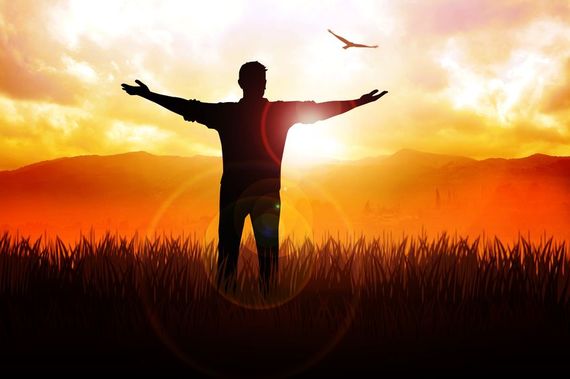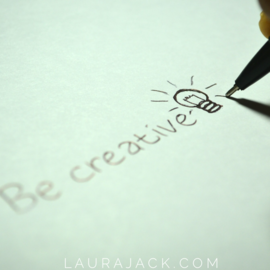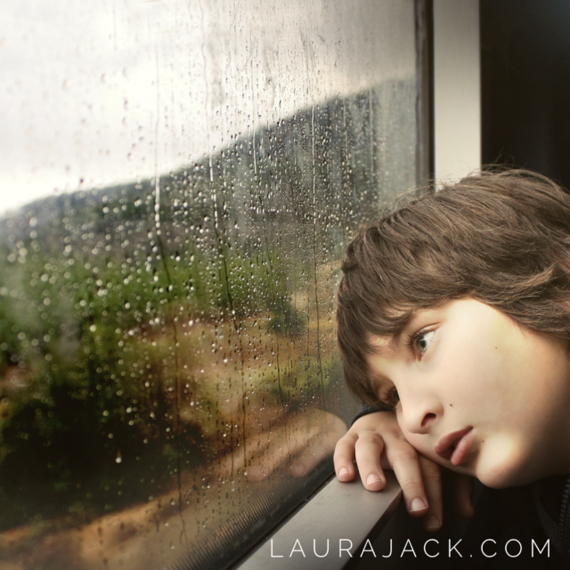Spoiler Alert: This post contains details about the plot.
We walked into the theater for date night, and my husband jokingly said, "We can tell people we are vetting this movie for Ayla." Ayla (pronounced eye-la) is our 10-month-old daughter who is a ways away from Inside Out, Frozen, Cinderella or any of the other fan favorites. The truth is, Aaron and I have been excited to see this movie since its preview came out over a year ago.
As a Certified Grief Recovery Specialist and Transformational Life Coach who specializes in loss, grief, and transition, I was curious to see how this movie was going to depict the different emotions and reactions that Riley, the 11-year-old protagonist, would experience.
So many movies send the wrong messages to young people about how to deal with their emotions. These messages reinforce core myths about grief and sadness.
When Inside Out was over and Aaron and I looked at each other, it was clear that we both agreed: This movie did it right!
I was thrilled with the meticulous and smart way in which the movie set up Riley's internal landscape, full of varied emotions, memories, core values, imagination, subconscious, etc. all with character and dynamics of their own. But it was not only this internal, carnival-esque landscape that excited me, it was how well the movie depicted Riley's reaction to the loss of her former, comfortable life.
For days, I could not get this movie out of my head. As I began taking notes to clarify my thoughts, I realized that there are seven critical lessons we can learn from Inside Out:
1. We all want to live our best life -- full of joy.
When you think of your "best life," what comes to mind? This is a very personal recipe that, for Riley, included family, hockey, friendship, etc. In each of her Islands of Personality, one emotion led the way: Joy. Consider what your own islands might be. How strong is your desire for these areas to be full of joy?
2. At times, we must allow other emotions -- anger, fear, disgust, and sadness -- to do their jobs.
Although we know that fear is a built-in safety mechanism, most of stigmatize it as weak and undesirable. Don't get me started on anger! But the truth of emotional health is that each of these has a job... a helpful purpose. This doesn't mean we should allow any one of them to take charge of our control panel, but it does acknowledge, without judgment, that they serve a vital role in our growth.
3. Imagination is a beautiful thing; exercise it as much as you can so it doesn't fade away.
Remember Riley's Goofball Island and her imaginary friend, Bing Bong? Now think about yourself as a child. In what ways did you prefer to use your imagination? The practice of creativity and imagination may change as an adult, but it does not have to fade away. For me, stepping into nature facilitates a lot of dreaming. Playing with my husband and our daughter is a return to the imagination of my childhood. You may consider something as easy as starting an imagination notebook. Write or draw something dreamy in it every morning. This simple act may set your mind toward imagination land for the rest of the day!
4. Even when things seem to be falling apart, there is an opportunity for growth and new beginnings.
When Riley set out to run away, did you feel the pain in her heart? I did. Her Islands of Personality were mostly crumbled, and Joy was nowhere to be found in her control center. Everything was, literally, falling apart.
I don't know about you, but I have certainly faced my darkest moments with a deep sense that it is almost the end of the world, only to turn a corner and, suddenly, experience some relief. That is when I usually have some kind of breakthrough moment; when I learn a core life lesson. Has this been the same for you?
5. Even though we don't like to feel sad, we have to allow it and express it so others can lend a helping hand.
Along those same lines, it is sadness that opens us up more fully to the support of others. Do you recall how Riley's eyes filled with tears as she held all of her hurt and pain inside? I know you have felt that way before. In setting aside our fear of looking weak by openly expressing our sadness, we give others a chance to offer comfort and care. This, too, is a human need.
6. When people feel sad, we need not fix it. The best support is acknowledging and validating their feelings.
As we show our care for those who are sad, we often slide into the position of fixer. Most people who are truly hurting, however, don't want to be fixed. They want to be validated. Heard. Understood. Sadness can be a very isolating emotion. The best way to help someone who is struggling is to acknowledge and validate their feelings.
7. Without sadness, we can't experience joy. They really do go hand in hand.
Of all the emotions, I think sadness and joy have the closest union. They are intimate. Sadness no longer has to stand in a designated circle and behave. She can sidle up to joy and find her place in your own life.
Even now, days later, I find myself considering Riley and her emotions. I think about the end of the movie when she finally opened up to her parents about how she felt. Instead of her parents simply telling her to be happy -- what most of us are told -- they said they feel the same way. They understood her. They held her.
It's at this moment that Ayla cries from her play area. While I haven't doubted my ability to raise a daughter with emotional safety and awareness, I'm glad that there are influences like Inside Out from which the rest of us can learn.


